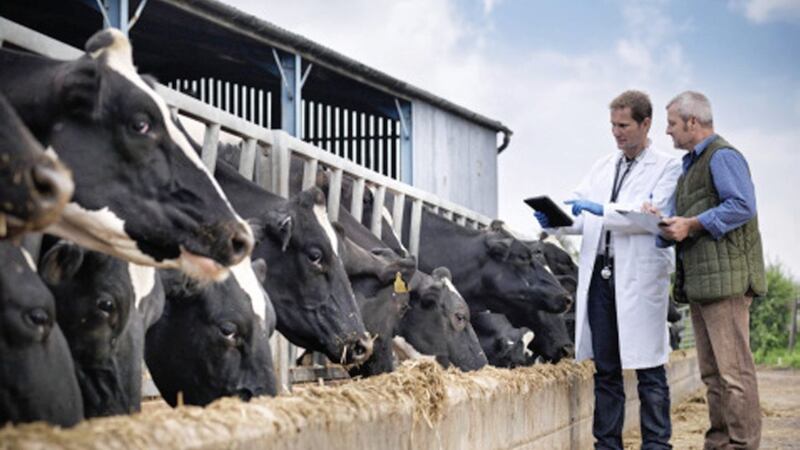UNCERTAINTY over the future licensing and supply of veterinary medicines for Northern Ireland, Britain and the Republic of Ireland is a pressing concern as the UK plans to leave the EU, Veterinary Ireland and the British Veterinary Association have said.
The comments were made at a recent Brexit coordination meeting held in Belfast.
Currently, European legislation regulates the way veterinary medicines are authorised, marketed and used. Post-Brexit, access to veterinary medicines could potentially be restricted and, in order to protect animal and public health, BVA has been calling on the UK Government to guarantee that the UK veterinary profession has ongoing access to all existing and future veterinary medicines licensed through the EU regulatory systems and existing import certificate mechanisms.
The UK’s exit from the EU's veterinary medicines approval system means the market for English-language labelling and data information will shrink, which could have a knock-on effect for those European countries, including the Republic of Ireland, that heavily rely on licensing and packaging with the UK.
Veterinary Ireland president John O'Connor said it is "big problem".
"If Brexit prompts EU medicine manufacturers to decide that English-language packaging and information-leaflets aren’t commercially viable then what is the Republic of Ireland going to do – start producing medicines ourselves? It is vital that Brexit negotiations ensure ongoing access to all existing and new veterinary medicines licensed through the EU and other regulatory systems so that it does not lead to interrupted supply difficulties for any existing stakeholders. This could seriously put at risk animal health, welfare and food safety.”
BVA junior vice president Simon Doherty, who chaired the meeting, said:
“For animal health and welfare, public health and food safety and trade, the veterinary profession in Great Britain and across the island of Ireland must continue to have access to medicines for the treatment of animals that meet standards that ensure safety, quality and efficacy. Continued cooperation, like this, with our colleagues in the Republic of Ireland is vital to ensure the strong cross-border relationships, the integrated north-south structures and daily movements of people, livestock and pets can continue for the benefit of animal health and welfare.”
Another priority issue discussed was the Common Travel Area, which pre-dates the EU and enables an estimated 30,000 movements of people, livestock and pets each day. The veterinary organisations will be encouraging their respective governments to consult on how best to ensure trade and professional services, including the veterinary practices and services that straddle the border, can continue post-Brexit without disruption.







